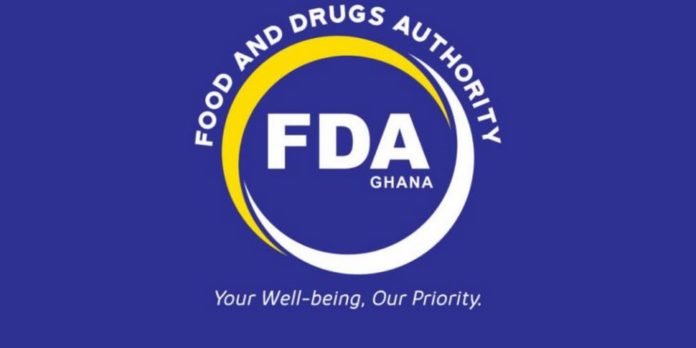A National Summary Report on Heavy Metal Contaminant Assessment conducted by the Food and Drugs Authority (FDA) has revealed elevated levels of heavy metals in some food and cosmetic products on the Ghanaian market.
The surveillance, carried out across all 16 administrative regions, tested levels of Lead (Pb), Cadmium (Cd), and Mercury (Hg) in turmeric, cereal mixes (tom brown), bentonite clay (“Ayilor”), kohl (“Kaji Kaji”), and certain skin-lightening creams and lotions.
The report, supported by the United Nations International Children’s Emergency Fund (UNICEF), was presented to stakeholders, including market women, regulators, health professionals, researchers, industry representatives, consumer advocates, and development partners.
Findings showed that kohl had a 77.79 percent contamination rate for lead, with the Upper East and Eastern regions recording 100 percent contamination. Turmeric recorded a 42.09 percent contamination rate for lead, with the highest levels in the Greater Accra and Central regions.
Cereal mixes, popularly called tom brown, had a 29 percent cadmium contamination rate, affecting mainly the Northeast, Western North, and Oti regions. Bentonite clay (“Ayilor”) recorded a 24.62 percent lead contamination rate, particularly in the Northeast and Greater Accra regions.
The report noted that unbranded products, especially those sold in open markets and retail shops, were the primary sources of contamination, raising serious public health concerns. However, some skin-lightening creams and lotions achieved 100 percent compliance in certain regions, with no mercury detected.
Deputy Chief Executive of the Food Division at the FDA, Roderick Kwabena Dadie Agyei, said the authority is developing new guidelines to address the issue, strengthen oversight of kohl products, and enhance port surveillance. He added that safety checks for cereal mixes are being expanded, recalls of contaminated turmeric brands have begun, and stricter inspections of imports are underway.
“The FDA believes traceability of food products must be taken seriously. We must know if these foodstuffs come from galamsey areas to stop their supply. Heavy metals are causing birth defects and serious health problems. We need to stop galamsey and change our agricultural practices,” Mr. Agyei said.
Health Specialist at UNICEF Ghana, Rev. Dr. Emmanuel Kyerematen Amoah, emphasized the dangers of lead exposure, particularly to children. He said even small amounts can damage developing organs, reduce IQ, impair learning, and cause kidney and heart diseases.
“This report is not the end; it is a call to decisive action. We owe it to our children, our families, and future generations to make this country safe from the devastating effects of lead. We must develop and enforce standards and regulations for lead in consumer items, and support trade groups and businesses to register their products properly and seek safer alternatives,” Dr. Amoah added.
Source: GNA



